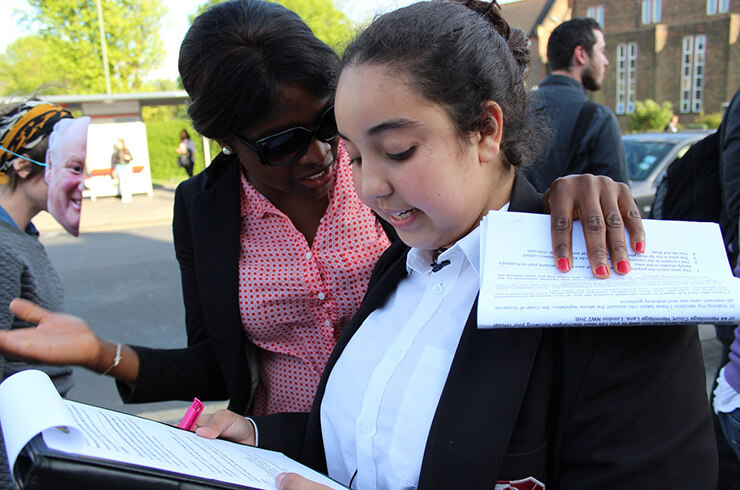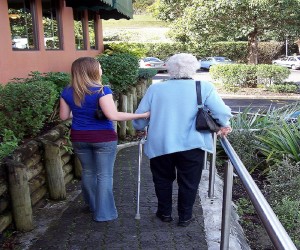Do we learn about politeness from the meaning in a dictionary, an explanation in an encyclopedia or lessons from schools? What do politeness mean? How does it change our day to day life, or how does it affect the respect and dignity that we enjoy?
Let us see the basic rules of politeness and how it influences our relationship in public and personal life. Your act of respect will eventually lead you to a more fulfilling and happier life.
What do ‘being polite’, mean?
In everyday life, we apply our language and gestures to express ourselves or communicate messages. The practical application of etiquette, good manners, and decent conduct suitable to a certain culture is being ‘polite’. This also means that politeness in one culture may be a rude, improper behavior in another. Being polite simply is “respecting others as you would want to be respected”. Awareness of the feelings of others is politeness.
How do we learn politeness?
In most societies, politeness are picked up as a second habit. Our instincts, the surroundings, we grow in the family and friends that embrace us and the schooling we go through all add up to our practical expressions during communication. In fact, we learn to be polite by noticing rudeness. In all cultures, rudeness or impoliteness is perceived more than politeness. Awareness of the fact that an unpleasant gesture does not give comfort and help build a relationship instills us to be polite. In a civic society, politeness is being civilized.
Why do we need to be polite?
Politeness is a major positive attribute in any relationship, be it personal or business. Our expression with the proper words and gestures lifts our self-esteem. It builds rapport due to the confidence of delivery. Further, politeness helps improve communication skills. What’s more, anything you want to achieve in life will only be possible if you take care of our manners wherever you are.
The 10 Golden Rules of politeness
As in other social settings, the pattern of politeness also follows some golden rules. Following the golden rules of politeness can cherish and build a love-love relationship and give happiness.
1. Respect others
The most obvious and remarkable feature of politeness is showing respect to others. Listening to your partner or an acquaintance is a sign of respect and preserving a relationship. Let others speak their mind. A positive attitude towards letting a friend open up gives good feeling and self-respect. That, in fact, graces you to become a respectable person by its own.
Be aware of others privacy. Knock the door before you enter a room or office. Ask permission if you want attention. Preserving others time would actually create a friendly atmosphere and help you to learn the techniques of creating a good relationship.
2. Don’t enforce
Have you ever felt mad and crazy when someone tries to make you believe in what you have disliked? A relationship may grow slowly but ever impose. An idea can be marvelous indeed, but as Josh Billings said “Politeness is better than logic. You can often persuade when you cannot convince”. Develop an elegant way of articulating your ideas to make them acceptable. “Be patient, because patience and politeness go together in building your inner strength”.
3. Offer alternatives
Often times there are a number of ways of achieving a good connection. Sometimes a gift may be rejected, but your decent attitude and words spoken well are likely to upturn a relationship. Think about options in the politeness vocabulary to make yourself and a relationship comfortable. Don’t turn down others’ opinion. Understand your friend or partners’ temperament and try out a way that satisfies both. You will eventually that your good attitude and politeness has brought you closer to trust each other.
4. Offer help
Politeness is an internal feeling, an expression that can be shown in the streets. Offer help to an elderly, a child, a disabled for kind feeling not to show sympathy. Give a hand to the grocery shoppers. ‘Politeness doesn’t cost anything’. A help to a stranger creates a spiritual psychic condition that adds to the lasting good feeling for both.
5.Appreciation
Never fail on appreciating the successes of friends. This shows your open, broad-minded, generous, trustworthy and unbiased personality and a sign of being balanced. Smile when you need to. Congratulating or acknowledging others achievement is a boost to make a person move forward.
6. Stay cool
Politeness is not reacting immediately or overreacting. Don’t say ‘I disagree’ or directly ‘you are wrong’ instead, you can say ‘I agree with some points,…’. You can break off to another topic for the time being. In business or personal understandings ‘we’ sounds, a sense of togetherness without implying blame.
7.Be assertive
Assertiveness creates an atmosphere of positive feelings of good wishes in a personal and interpersonal relationship. Appreciate good deeds of others generously. Always use positive connotations such as ‘well’, ‘excellent idea’, ‘please’ and ‘thank you’. A word of thankfulness, a pat on the shoulder should not be part of your personality. Assertiveness reassures you to come out with ideas that they have not shared with anyone before.
8. Be diplomatic
Diplomacy is a sign of intelligence. It is in essence saving face, dignity and self-image of others. Use of negative politeness, meaning keeping a safe distance from intruding into the others opinion can be followed when starting a business or personal relationship. The best way to do this is not to express negative sides of others or talk about things that suit the situation. The ability to use diplomacy and tact in your conversation is not to break a relationship, but to respect and preserve the others feelings of dignity. As Isaac Newton has said ‘Tact is the art of making a point without making an enemy’.
9. Learn to apologize
Apologizing for a wrong step is politeness. It takes off the tension and bad feeling between both the sides. Expressing regrets in a meaningful language also relieves your burden and retains your face value.
10.Greetings
A greeting of ‘Hi’, ‘hello’, ‘how do you do’ is an excellent way of starting a conversation. Extending your hand for a shake at the start and end are often a polite practice. As the relationship grows, we hug each other and respect each other’s close bondage.
Politeness and good manners do not cost money. It adds up to your self-respect and worthiness at home and in the society. Diplomats and intelligent people use humor appropriately, but not extravagantly to create friendships and lasting relationships. Make it a point, that simple politeness can take you up the ladder to success, dignity, happiness and love relationship in life. You will see practicing politeness does add value to your lifetime goals and complements your relationship.









No Comments